The nutrition paradox
-
- from Shaastra :: vol 03 issue 09 :: Oct 2024

Malnutrition is, of course, acute in low-income countries. But even in affluent countries, dietary choices impact health.
howindialives.com
howindialives.com is a database and search engine for public data
Nutrition is a critical global issue today, characterised by paradoxes and complexities. Technological advancements in production, processing and distribution have increased food availability for many. However, inequalities persist, both within and between countries, leading to disparities in nutritional access. Even among affluent populations, dietary choices often negatively impact health, compounded by factors like stress. Technology can help, but that alone might not be enough, as behavioural and environmental factors also play a part.
NUTRITION FACTOR
In recent decades, the percentage of people who are malnourished — those who eat too little to get the dietary energy required for a normal, active and healthy life — has been dropping. There has, however, been an uptrend in the past few years due to the economic disruption induced by COVID-19. Even so, the share of malnourished individuals globally is lower today as compared to the turn of the century.
However, it is still marked by inequality. Least-developed countries still struggle to provide healthy food to about 28% of their population.
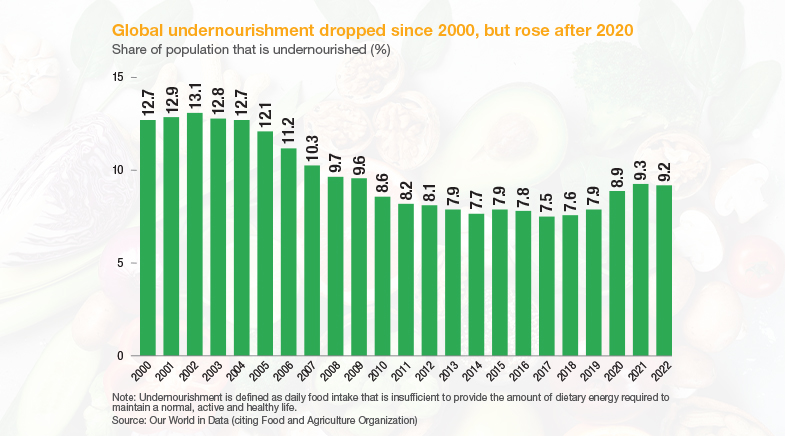
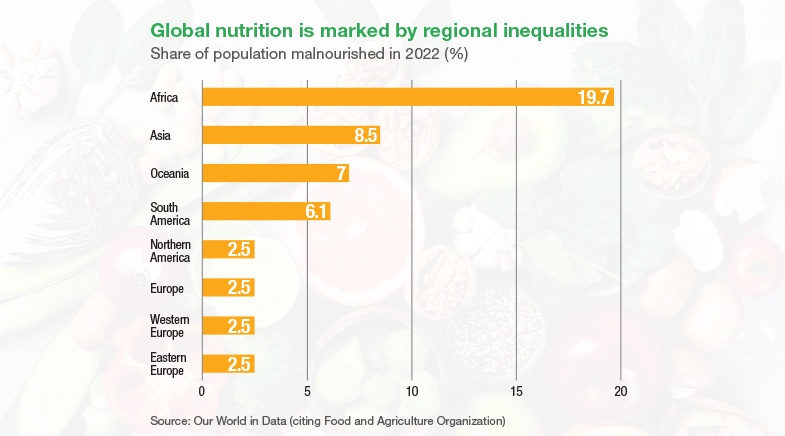
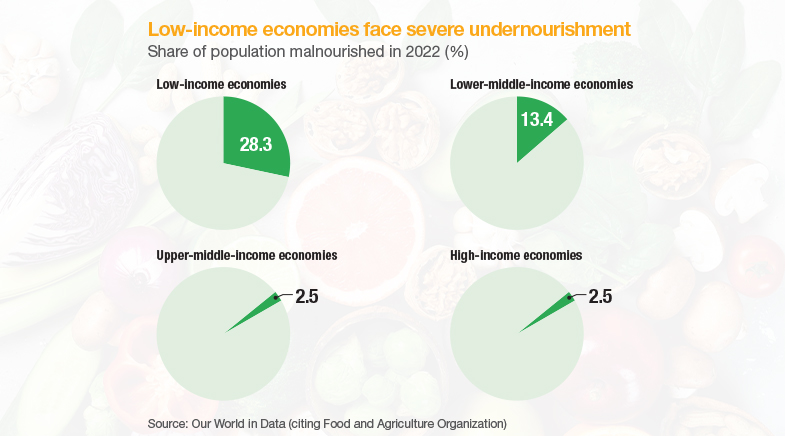
QUALITY OF FOOD, TOO, COUNTS
It's not just the lack of dietary energy that is a cause for concern. It's also the quality of food, even in rich countries. According to a study by the Institute for Health Metrics and Evaluation, a tenth of all deaths in 2021 was associated with poor diet. Poor diet also accounted for 30% of all cardiovascular diseases, a major cause of death globally. While deprivation is a health, economic and moral concern, diet matters even for the rich.
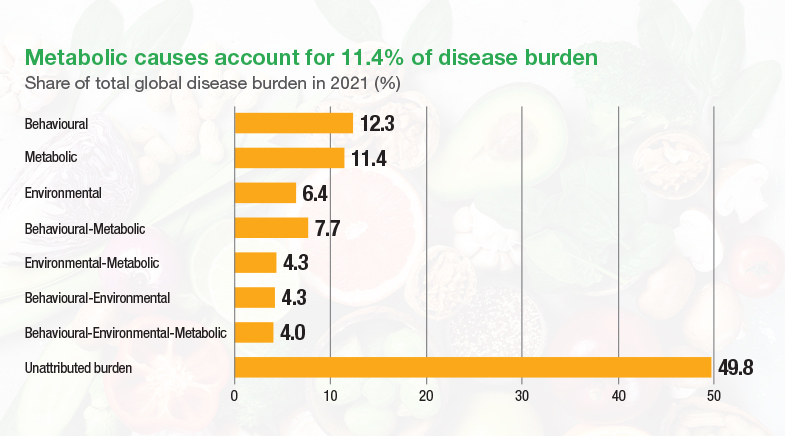
SOLVING AT SCALE
Globally, governments and policymakers are addressing malnutrition through a combination of strategies focusing on food security, healthcare access and nutrition education. Key initiatives include expanding social safety nets to ensure vulnerable populations have access to nutritious food, promoting breastfeeding and maternal nutrition, and fortification of staple foods with essential vitamins and minerals. The number of countries that mandated fortification of food remained in single digits even in the 1950s. However, it picked up, especially in the 1990s, with 143 countries mandating it by 2018.
As awareness levels increased, demand from consumers also picked up. For example, when consulting firm McKinsey surveyed customers on purchasing factors, it found they were increasingly shifting towards clinically proven products across categories. This has also helped push research in this field. In a 2024 report, McKinsey noted that "companies can boost the clinical credibility of their products by using clinically tested ingredients", among others.
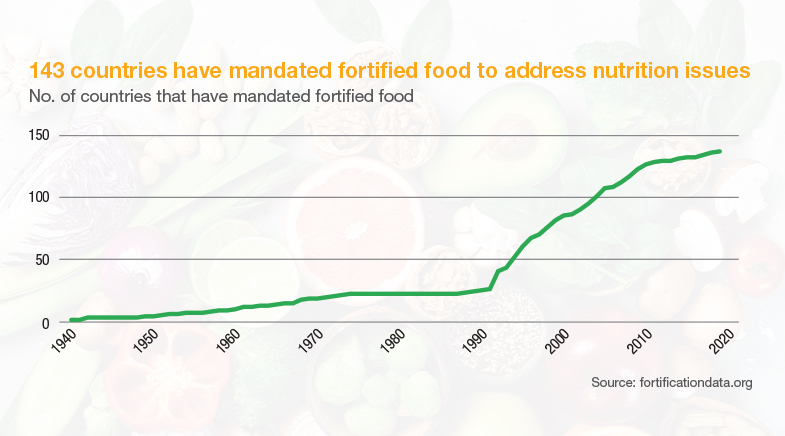
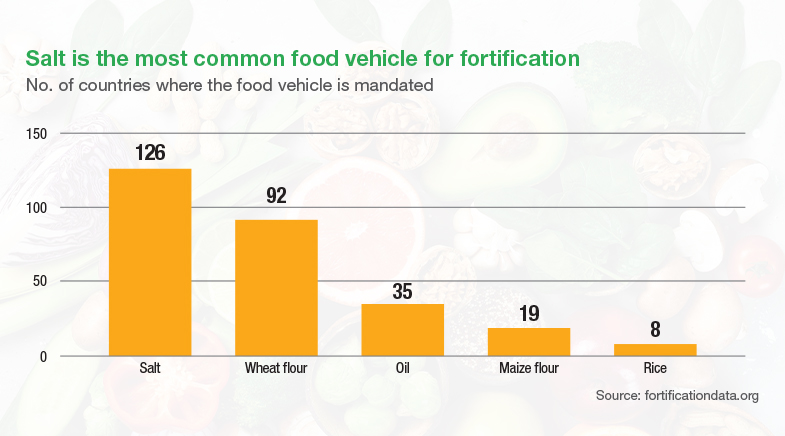
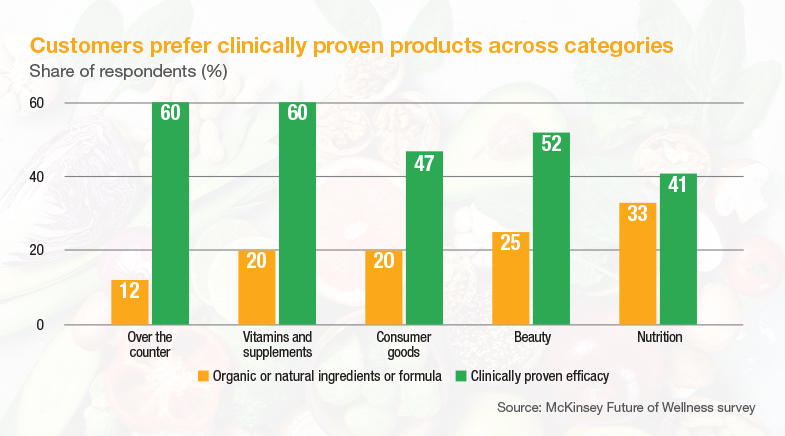


CUSTOM SOLUTIONS
While government interventions and businesses catering to large markets have resulted in solutions at scale, there has also been significant progress in personalised nutrition, where the solution is designed for an individual. Today, personalised nutrition is a growing industry. It is driven by several factors. The rise of wearable devices, mobile apps, and AI-powered platforms enables individuals to track their dietary habits, monitor health metrics, and receive tailored nutrition advice.
Advances in genomics have made it possible to understand how individual genetic make-up influences nutritional needs. With the increasing prevalence of lifestyle-related diseases like diabetes and obesity, there is a push towards personalisation as a preventive and management tool. Some of these factors are interlinked. For example, the wearables market has expanded to include devices like glucometers that can monitor sugar levels, which in turn influences personalised eating and nutrition plans.
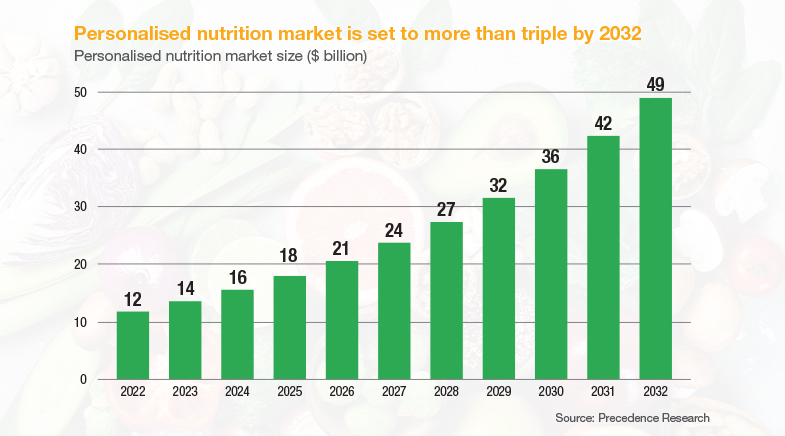
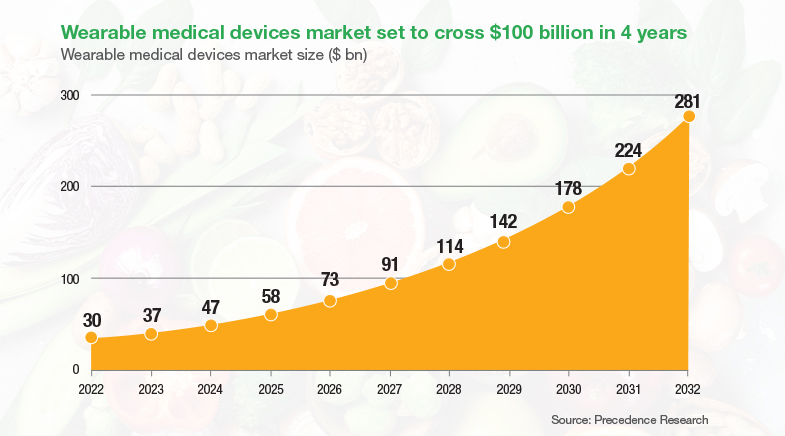
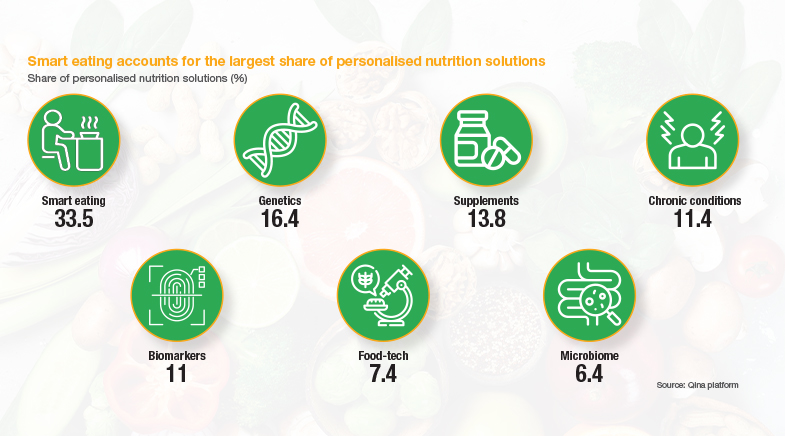
Have a
story idea?
Tell us.
Do you have a recent research paper or an idea for a science/technology-themed article that you'd like to tell us about?
GET IN TOUCH














